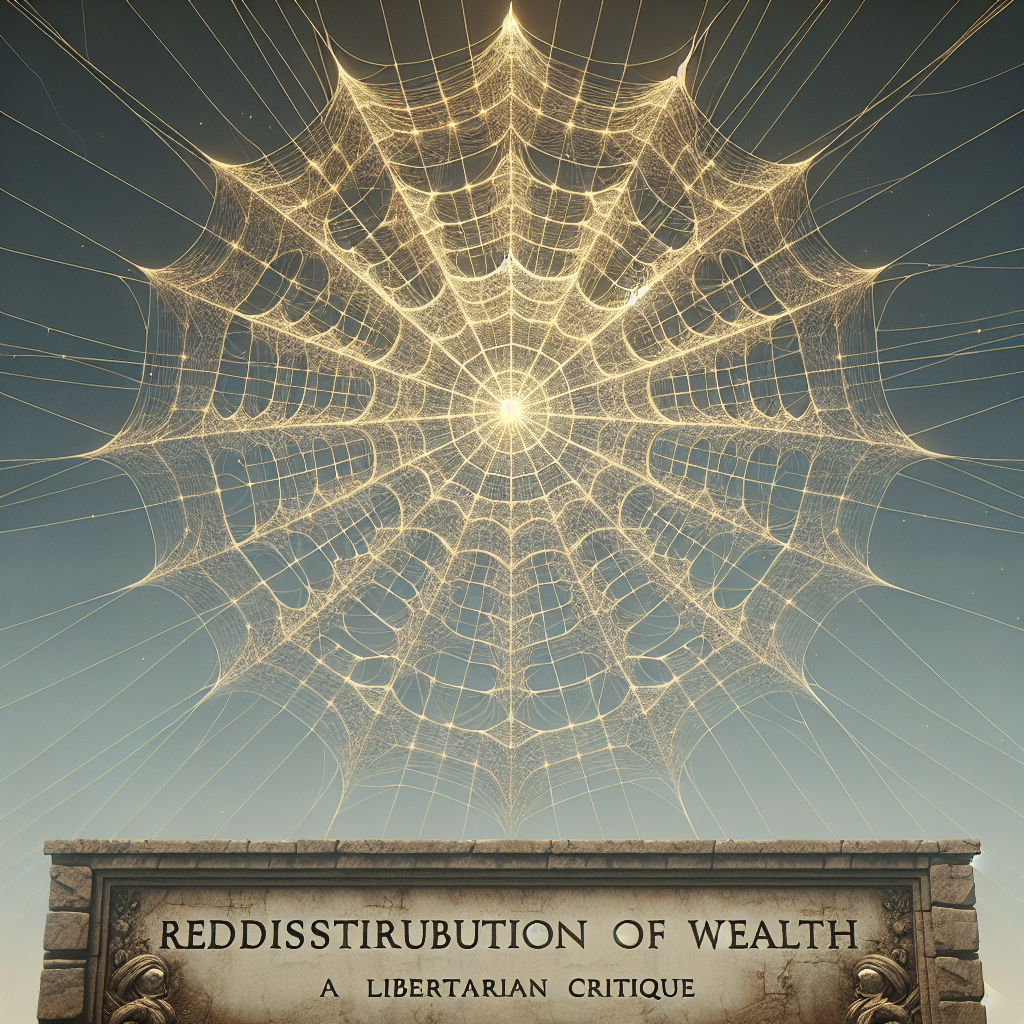Redistribution of Wealth: A Libertarian Critique
The topic of wealth redistribution has long been a contentious issue in political discourse. Advocates argue for the need to address economic inequality, while critics, particularly from a libertarian perspective, raise fundamental objections. This article explores the libertarian critique of wealth redistribution, elucidating its principles, concerns, and alternatives.
Understanding Wealth Redistribution
Wealth redistribution refers to the transfer of income and resources from certain individuals or groups to others through mechanisms like taxation and social welfare programs. Proponents argue that it fosters social equity and provides essential services to marginalized populations. However, libertarians challenge the morality and efficacy of such policies.
The Libertarian Philosophy: Individual Rights First
At the heart of libertarian ideology lies the belief in individual rights and personal freedom. Libertarians assert that each person owns their life, body, and the fruits of their labor. Therefore, forced redistribution through taxation is viewed as a violation of these rights. To them, individuals should retain the full product of their labor without government interference.
Moral Implications of Coercive Taxation
Libertarians argue that taxation is coercive, likening it to theft when it is used to redistribute wealth. They contend that individuals should voluntarily choose to support social programs rather than being forced to contribute against their will. This perspective leads to the conclusion that any form of wealth redistribution undermines the principles of justice, autonomy, and personal responsibility.
Economic Inefficiencies of Redistribution
Disincentives for Productivity
One of the primary economic critiques of wealth redistribution is its tendency to create disincentives for productivity. Libertarians argue that high taxation and redistribution policies can discourage entrepreneurship and innovation. When the fruits of one’s labor are taken away, there is less motivation to work hard or take risks, ultimately leading to diminished economic growth.
Misallocation of Resources
Libertarians also emphasize that government redistribution often leads to inefficiencies. Centralized decision-making by the state can result in poor investment choices compared to what market mechanisms would naturally determine. The belief is that individuals and businesses are more capable of prioritizing and allocating their resources in ways that best meet their needs and the needs of the community.
Alternative Solutions: Voluntary Charity and Market Solutions
Promoting Voluntary Charity
Rather than enforcing redistribution through taxation, libertarians advocate for voluntary acts of charity and philanthropy. By encouraging individuals to contribute to causes they are passionate about, they argue that society can address inequality in a more moral and efficient manner. This approach respects individual freedom while fostering a culture of giving.
Market-Based Solutions
Libertarians suggest that a free market economy offers solutions to economic inequality without the need for coercive government intervention. They argue that competition drives innovation, lowers prices, and creates jobs, thus providing opportunities for everyone to improve their economic standing. Policies that promote entrepreneurship and reduce regulatory burdens are viewed as paths toward greater prosperity for all.
Conclusion: Rethinking Wealth Redistribution
The libertarian critique of wealth redistribution raises important questions about the role of government, individual rights, and economic efficiency. By advocating for a system that respects personal freedom and emphasizes voluntary contributions, libertarians present an alternative vision for addressing societal inequalities. As the debate continues, it is crucial to weigh the moral implications and practical consequences of wealth redistribution against the core values of liberty and self-ownership.
In exploring this critique, we invite readers to consider the broader implications of wealth redistribution policies, their potential pitfalls, and the importance of fostering an environment where individuals can thrive independently while contributing to their communities in meaningful ways.
Share this content:












Post Comment